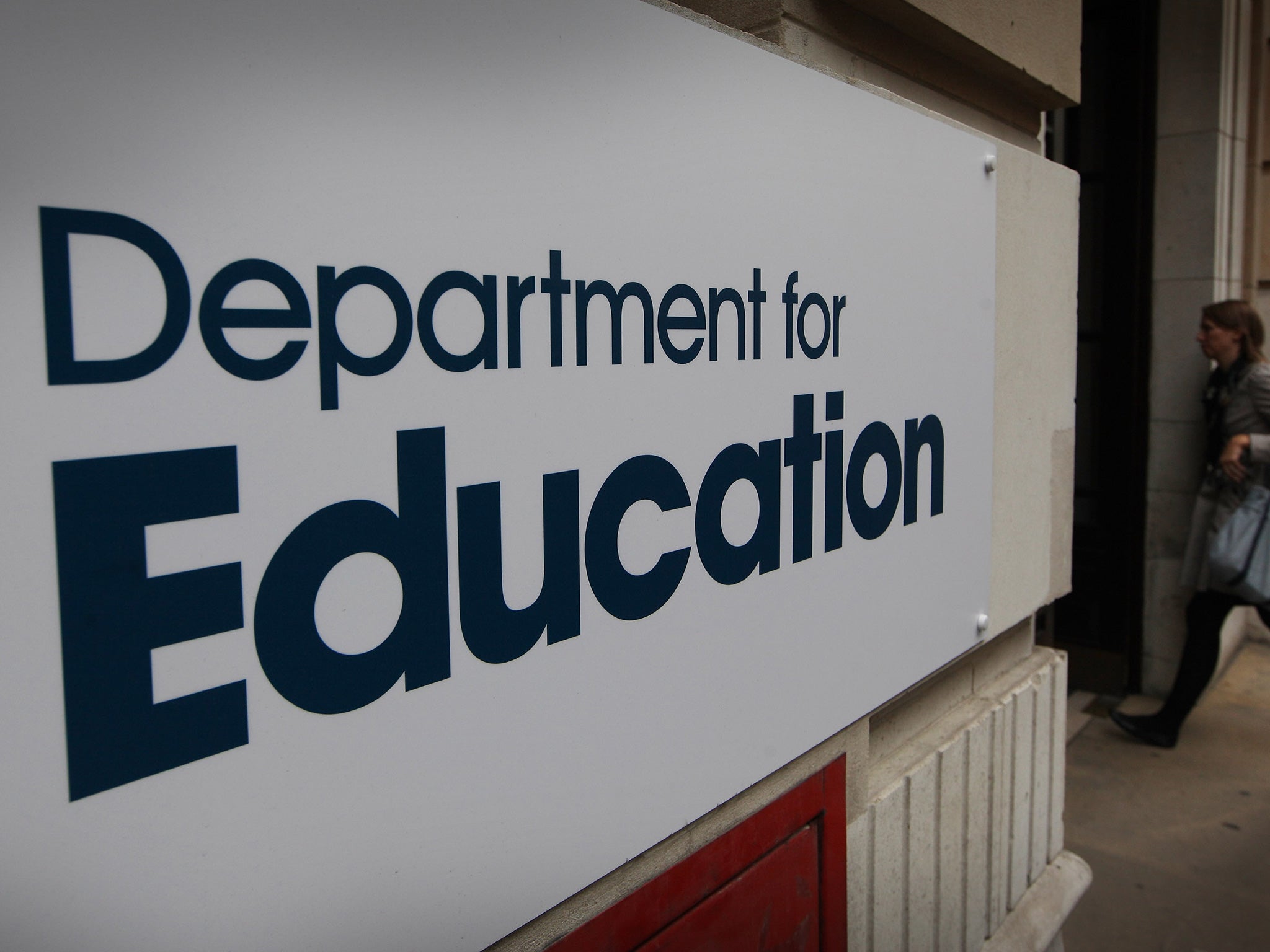Summer schools for disadvantaged pupils 'face closure' after having funding withdrawn
Schools offer catch-up classes for 11-year-olds struggling in maths and English before they start secondary school

Your support helps us to tell the story
From reproductive rights to climate change to Big Tech, The Independent is on the ground when the story is developing. Whether it's investigating the financials of Elon Musk's pro-Trump PAC or producing our latest documentary, 'The A Word', which shines a light on the American women fighting for reproductive rights, we know how important it is to parse out the facts from the messaging.
At such a critical moment in US history, we need reporters on the ground. Your donation allows us to keep sending journalists to speak to both sides of the story.
The Independent is trusted by Americans across the entire political spectrum. And unlike many other quality news outlets, we choose not to lock Americans out of our reporting and analysis with paywalls. We believe quality journalism should be available to everyone, paid for by those who can afford it.
Your support makes all the difference.Most of the country’s summer schools for disadvantaged pupils will close next year as a result of having their funding withdrawn by the Government, it has been predicted.
The schools offer catch-up classes for 11-year-olds struggling in maths and English before they start secondary school.
In the past the Department for Education has said of them: “Summer schools provide an excellent opportunity for secondary schools to help disadvantaged new pupils understand what and how they will be studying in Key Stage Three (for 11 to 14-year-olsa).
“It is also an opportunity for schools to help disadvantaged pupils who are behind in key areas such as literacy and numeracy to catch up with their peers.”
The withdrawal of the funding for next year was announced by the Education Funding Agency in a terse one-line statement which simply said: “Summer school funding will not continue in 2016.”
A survey of 140 schools carried out by youth training specialist Let Me Play, who have run summer schools for the past eight years, revealed that nearly two-thirds of schools would not run the summer schools without the targeted funding. In addition, 98.62 per cent of respondents said they believed the schools had had an impact on the participating pupils.
One school that participated in the programme, said: “We have a very high number of pupil premium students eligible for summer school and some of these students ... had a massive benefit to their self-esteem and confidence. We had 81 per cent progress in literacy and 88 per cent progress in numeracy.”
Another added: “Our school can only afford to run the programme with the government funding as our already tight school budget doesn’t allow for it at all. If the Government doesn’t support funding for 2016 then this impacts a lot of pupils.”
Amy Lalla, director of Let Me Play, said: “The decision is entirely at odds with David Cameron’s professed aim to increase social mobility and tackle entrenched social problems. It made a huge difference when additional funding was made available for summer schools three years ago: up to 2,000 schools have accessed the money.”
“This is the point at which many disadvantaged young people fall by the wayside. They’re moving from being a big fish in a small pond to being a very small one in a very large, unfamiliar environment that often simply overwhelms them - and the impact on their attainment can be disastrous. If they falter at this stage, we know that many will never catch up.”
The Department for Education is encouraging schools to keep the summer schools going - and suggest that they use money from the pupil premium, allocated to schools for every free school meals pupils, to pay out.
However, it is being acknowledged it was a difficult decision that had to be made in the light of Chancellor George Osborne’s comprehensive spending review announcement.
A spokeswoman for the DfE said: “Providing educational excellence everywhere is at the heart of this Government’s drive to extend opportunity to all pupils. That is why we are protecting the core schools budget in real terms and the pupil premium rates for the duration of this Parliament.”
Join our commenting forum
Join thought-provoking conversations, follow other Independent readers and see their replies
Comments